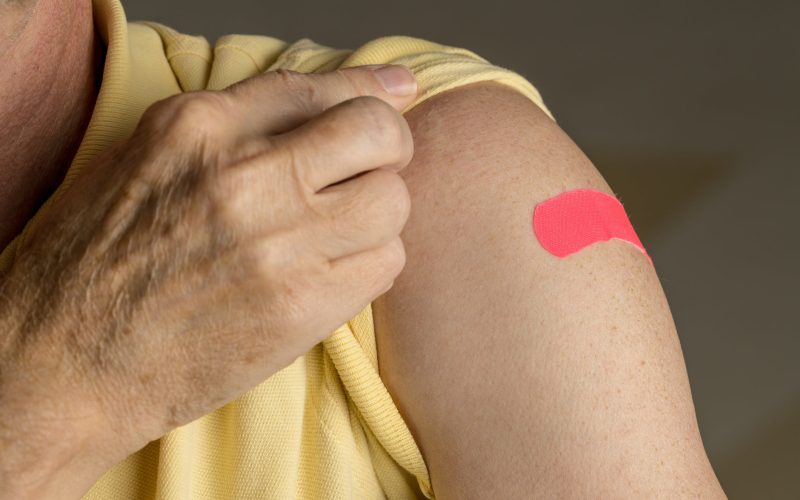In the Netherlands, a large-scale study will start this week in 22 hospitals, including all university medical centers and the Santeon hospitals, investigating whether the vaccine against tuberculosis (the BCG vaccine) offers protection against the consequences of an infection with the coronavirus in frail elderly people. The Ministry of Health, Welfare and Sport considers this research of significant importance and has therefore asked ZonMw to include it as an urgent project in the research program for COVID-19. The study is coordinated by UMC Utrecht.
The coronavirus has the capability to make frail elderly people seriously ill and they therefore have the highest mortality. There is currently no specific vaccine against the coronavirus available. Previous research has already shown that the BCG vaccine not only protects against tuberculosis, but can also increase resistance against other pathogens by giving the immune system a temporary “boost”. This boost may offer partial protection against coronavirus infection, which means that fewer people may be affected by the virus and the infection may also be milder.
For this placebo-controlled study, frail patients aged 60 years and older are approached to enroll through the hospital where they are under treatment. The study will look at two primary endpoints: (a) the number of corona infections occurring, or (b) the occurrence of respiratory tract infections (including COVID-19) that require medical treatment. In order to have results as quickly as possible, the participating hospitals will recruit between 5,200 and 7,000 frail older people over the next two months, who will be followed for 6 months after vaccination. The first results are expected by the end of this year.
Marc Bonten, professor of molecular epidemiology of infectious diseases at UMC Utrecht and principal investigator of the study says: “In recent months, there have been several indications that the BCG vaccine does indeed protect against respiratory infections. This study should provide the definitive answer for frail older people within a short time period. The importance of the study is already apparent from the fact that no fewer than 22 hospitals decided to cooperate in a short period of time. ”
The BCG vaccine is worldwide the most widely administered vaccine and has been used around the world for decades to prevent tuberculosis. This has ensured that the vaccine is seen as proven to be safe and that the possible side effects are well-known. In addition, there is increasing evidence that the BCG vaccine stimulates the immune system and thus may protect against respiratory infections in general.
The BCG-PRIME study is the fourth study in the Netherlands with the BCG vaccine against COVID-19 in a short time. Recently, three studies have already been started under the leadership of UMC Utrecht (Prof. Marc Bonten) and Radboudumc (Prof. Mihai Netea) into the possible protective effect of the BCG vaccine against the corona virus.
In these three studies, all participants have been vaccinated and they are now systematically monitored, looking at whether they develop COVID-19 as well as the prevalence and severity of the symptoms. The timeline for publication of the results depends on whether and how quickly differences arise between the number of corona cases and severity of the symptoms between the BCG group and the placebo group.
The BCG-PRIME study was set up by UMC Utrecht with support from the Ministry of Health, Welfare and Sport and was funded by a ZonMw grant of up to € 8.5 million. Participants in the study are the Dutch academic hospitals (Amsterdam UMC, Erasmus MC, LUMC, Radboudumc, UMC Groningen, UMC Maastricht, UMC Utrecht), the Santeon hospitals (Canisius-Wilhelmina Hospital, Catharina Hospital, Maasstad Hospital, Martini Hospital, Medical Spectrum Twente, OLVG, St. Antonius Hospital) and further Amphia Hospital, Hospital Bernhoven, Haga Hospital, Ikazia Hospital, Jeroen Bosch Hospital, Meander Medical Center, Rijnstate Hospital and Zuyderland Hospital.
